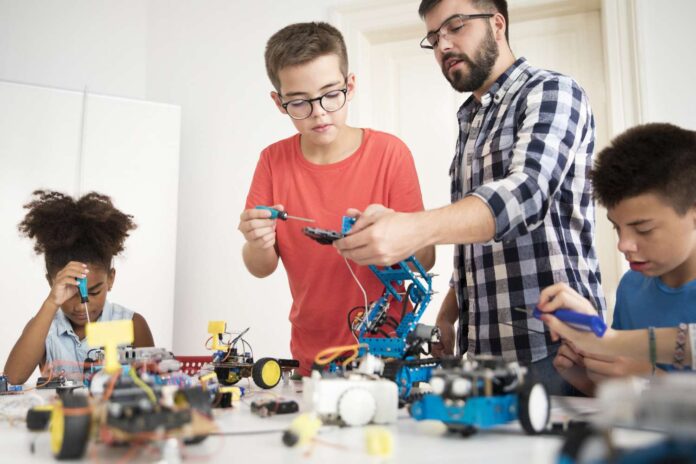The advantages and challenges of co-curricular activities are vast and varied. Co-curricular activities are activities that are offered beyond the standard curriculum and might include activities such as sports, music, art, theater, and service-oriented activities. These activities have the potential to provide students with a wide range of skills, experiences, and opportunities that can contribute to their academic and personal success.
On the plus side, extracurricular activities can assist students in acquiring new abilities such as time management, leadership, teamwork, communication, and problem-solving. These activities can also provide opportunities for students to explore different interests, gain self-confidence and socialize with peers.
What Are The Top Co-Curricular Activities?
Co-curricular activities are an integral component of the educational experience, providing students with an opportunity to develop skills in a range of areas. These activities create a well-rounded educational program that can give students experiences they may not get in the classroom. When it comes to choosing the finest co-curricular activities, there is no one-size-fits-all strategy. For more information, just click this site: https://www.nexus.edu.sg/school-life/cca.
Depending on individual interests and aptitudes, students should select activities that best fit their needs and goals. Sports, student government, theatrical and musical productions, robotics and technology clubs, community service, and various other clubs and organizations are some of the most popular extracurricular pursuits.
What Is The Main Objective of Co-Curricular Activities?
Co-curricular activities’ major goal is to give students a chance to advance their abilities, knowledge, and self-confidence outside of the classroom. These activities can have a number of advantages, including fostering a sense of community and improving leadership, teamwork, communication, and problem-solving skills. Participating in co-curricular activities can also help to develop a student’s social-emotional skills and provide a platform to demonstrate their creativity, build relationships, and explore interests.
Co-curricular activities are designed to help students build important life and professional skills such as effective communication, teamwork, problem-solving, leadership, and critical thinking. Co-curricular activities can also give outlets to create and strengthen relationships between students and professors, enhance physical and mental wellness, and stimulate creativity and self-expression. Ultimately, co-curricular activities can help equip students with the knowledge and skills needed to become successful and contributing members of society.
How Do You Plan Your Co-Curricular Activities?
Planning your co-curricular activities is an important part of your overall success in school and beyond. Decide what actions will help you accomplish your short- and long-term goals by first assessing them. Think about engaging in activities that complement both your personal and professional interests because they are probably more satisfying and beneficial.
Look for activities that help you develop skills that you may need in the future. Once you have identified potential activities, make sure you research the requirements and time commitments needed to participate and decide if they are feasible. Make a list of the activities you want to engage in, give them priority, and then figure out how to fit them into your busy schedule. Co-curricular activities can be designed and carried out in a way that is advantageous to everyone concerned through this procedure.












